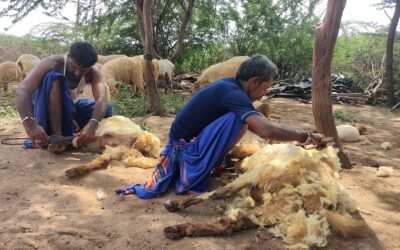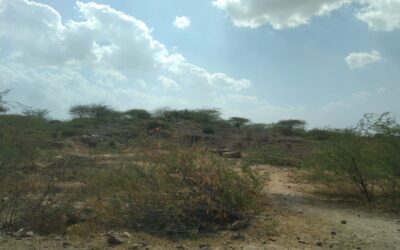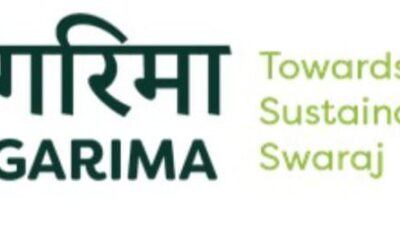A session on Natural Disasters was going on in my class, located inside a Porta Cabin in Sukma, Chhattisgarh. After a brief explanation, I asked everyone to write what they understood along with a few examples. Next day, students were ready with their stories. They started reading it one by one. Kapil* mentioned an incident which happened during his childhood:
“When I was 8 years old, I saw some external forces entering our village, forcing us to leave. Many people were killed and property was lost.”
Three more students said similar things. I got a sense of how they understood a natural disaster. All of them were referring to a movement that occurred in the parts of Sukma and Dantewada between the years of 2006 to 2011. Vinay*, a 14 year old, studying in 7th class, has seen the forces fighting in front of him when he was just 7. His village was set on fire and everyone was forced to leave their homes, the place where they lived for several years. Then there is Akshay* whose family was shot in front of him. His sister was taken away by the forces and was killed later.
This movement was named Salwa Judum.
Salwa Judum means “Peace March” or “Purification Hunt” in Gondi, the language used in tribal regions of Chhattisgarh. It was an anti-insurgency operation aimed at countering Naxal violence. A lot of local people including the tribal youth were trained to be a part of the battle. The soldiers were called Koya Commandos. A huge number of youngsters had taken part in this movement because of the attraction towards weapons, and also to protect their villages from Maoist influence.
The first battle against Naxalites was started in the year 1991, by Mahendra Karma, a local tribal leader. It was supported by local businessmen and traders but shortly collapsed due to various factors. Later on, Mahendra Karma became an MLA. When government came up with the plan of mining in south Bastar region, and drive away Naxals, he became the face of that movement. It became active only in the year 2006 and took a lot of lives, destroyed and damaged public as well as private property. Five years later, on July 5th, 2011, Supreme Court stopped the movement and asked government officials to recover all the arms and/or weapons.
Today, the government is working at its own pace and naxals are still out there. But, what happened to people who were privy to the daily activities of this movement. People whose property was destroyed, children who dropped out of schools due to the ongoing violence, institutions that were blasted. Thousands of nights have passed and yet, many of them still go to sleep with a familiar underlying fear of cross-firing between the armed forces, and getting caught in crossfire.
A few days back, during one of the field visits to a village, I got a chance to interact with Hunga*, a middle-aged man who was a part of the movement and subsequently, was offered to join Special Police. He had refused because he knew that once the war is over, the commandos will be the target for the forces. He also narrated how one of his friends on his way back home, was shot.
Children living in most residential schools around the country may be eagerly waiting for summer vacations so that they can go home and spend some time with their families. But here, the children are afraid to go home because of the situations they are going to face and the memories that will keep haunting them. Not everyone remembers their childhood because it was the best time of their life.
*Name changed to protect identity




Never knew anything about this. Thanks for writing. Would love to know more detailed stories by people and how they think their lives are better/worse today.
It is good to know the tribal names and events’ description. I do remember faintly reading about it in newspapers; but just feels so much more real as i read this.